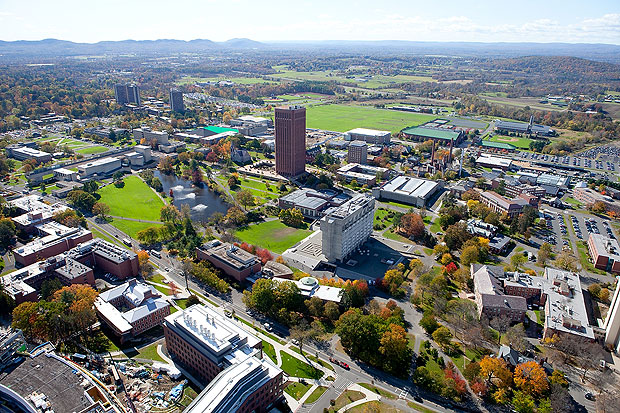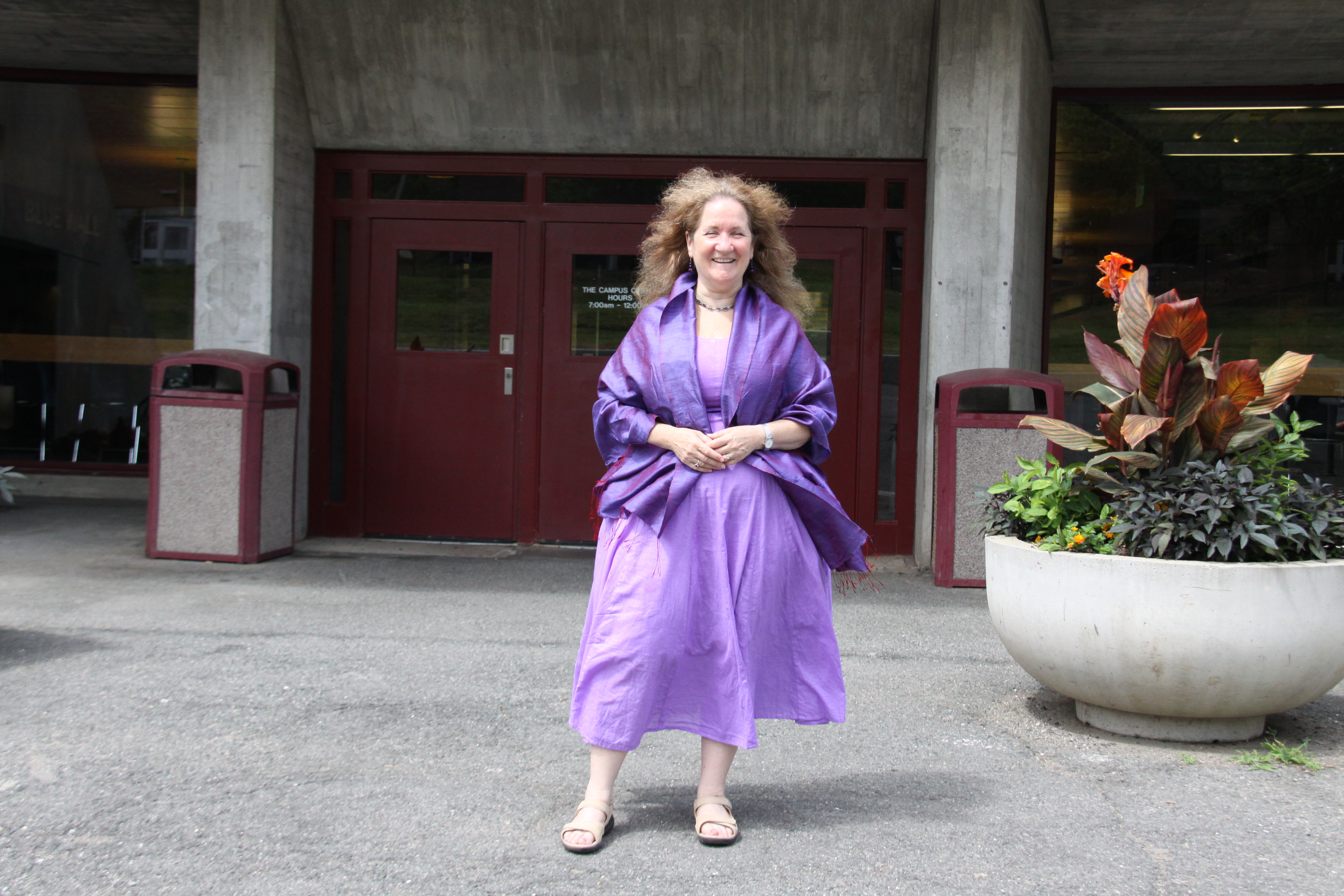
(Courtesy of the University of Massachusetts Amherst)
In 2005, the University of Massachusetts Amherst enrolled about 300 international students. By 2015, that number had more than tripled to 980.
UMass Amherst Provost Katherine Newman says the university’s international outreach was by design.
“The world that we need to prepare our students for is one that contains people from all over, ” she said.
Over the past ten years, the university has recruited more foreign students -- primarily from China, India and Korea.
All of these students pay the full non-resident tuition of $15, 252 to come to UMass Amherst.
“That money, in turn, is funneled back into financial aid for Massachusetts students,” said Newman, sitting in the the university’s iconic Blue Wall Cafe. “We wouldn't be able to afford to give them the kind of access we can give through our financial aid programs, which are never enough. Never enough."

Katherine Newman is the Provost and Executive Vice Chancellor of the University of Massachusetts Amherst. (Kirk Carapezza/WGBH)
Since state funding isn't coming back any time soon, UMass has plans to generate revenue by recruiting even more international students.
This summer, the university is entering a partnership with Shorelight Education, a Boston-based company that works with American universities to increase their international enrollment.
The company has multi-year contracts with several public universities across the country, including Auburn University in Alabama, which has significantly boosted the number of foreign students.
"UMass Amherst has world-class programs, and they want to expand capacity," said Tom Dretler, Shorelight’s CEO. “In the work that we've done with public institutions, they're so mission-oriented that it always starts with ‘what can we do to support the mission?’, but they also need to be creative. I think everyone is asking them to be innovative."
At UMass Amherst, Shorelight will cover the cost of finding international graduate students interested in the school's engineering and computer science programs.
The university won't pay anything up front, and students will study on the UMass campus in the summer - at a time when the university has about 13,000 empty beds - before returning home to complete their degrees online.
UMass has not yet disclosed how much it will charge foreign students, but Shorelight and the university say they'll share any tuition revenue.
Critics, including the Pioneer Institute, see the deal as a slippery slope for UMass.
“They’ve made a strategic decision to expand by accepting more out-of-state students and more international students,” said Greg Sullivan, the institute's Research Director. “One of the missions of UMass should be to give opportunities to state students - particularly at UMass Amherst, which is the flagship campus. It’s getting very hard for in-state students to get into UMass.”
The university is certainly becoming more competitive.
Mark Nemec, the Dean of the Graham School of Continuing Liberal and Professional Studies at the University of Chicago, has spent years studying American higher education, and he thinks Sullivan's rationale is shortsighted.
“Higher education institutions are always at their best when they look as broadly as possible, and this is a vehicle to do that,” said Nemec.
And if that philosophical argument doesn't work for policymakers, Newman says they should look at the dollars and cents of the deal.
"If we assumed that only students born and raised in Massachusetts were going to be the entire labor force of this state then maybe we wouldn’t need anyone else, but that’s not true,” she said. “These are growth industries, especially in fields like computer science, cyber-security, data science. We would prefer to be a magnet that brings people into the state.”
And hopefully, she says, UMass Amherst can help those people stay here.










